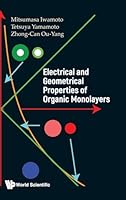
Atomistic Computer Simulations: A Practical Guide
- Length: 361 pages
- Edition: 1
- Language: English
- Publisher: Wiley-VCH
- Publication Date: 2013-04-15
- ISBN-10: 3527410694
- ISBN-13: 9783527410699
- Sales Rank: #2767783 (See Top 100 Books)
Many books explain the theory of atomistic computer simulations; this book teaches you how to run them
This introductory “how to” title enables readers to understand, plan, run, and analyze their own independent atomistic simulations, and decide which method to use and which questions to ask in their research project. It is written in a clear and precise language, focusing on a thorough understanding of the concepts behind the equations and how these are used in the simulations. As a result, readers will learn how to design the computational model and which parameters of the simulations are essential, as well as being able to assess whether the results are correct, find and correct errors, and extract the relevant information from the results. Finally, they will know which information needs to be included in their publications.
This book includes checklists for planning projects, analyzing output files, and for troubleshooting, as well as pseudo keywords and case studies.
The authors provide an accompanying blog for the book with worked examples, and additional material and references: http://www.atomisticsimulations.org/.
Table of Contents
Part One The World at the Atomic Scale 1
1 Atoms, Molecules and Crystals 3
2 Bonding 17
3 Chemical Reactions 31
4 What Exactly is Calculated? 41
Part Two Introducing Equations to Describe the System 55
5 Total Energy Minimization 57
6 Molecular Dynamics and Monte Carlo 75
Part Three Describing Interactions Between Atoms 89
7 Calculating Energies and Forces 91
8 Electronic Structure Methods 105
9 Density Functional Theory in Detail 127
Part Four Setting Up and Running the Calculation 145
10 Planning a Project 147
11 Coordinates and Simulation Cell 165
12 The Nuts and Bolts 193
13 Tests 213
Part Five Analyzing Results 225
14 Looking at Output Files 227
15 What to do with All the Numbers 235
16 Visualization 253
17 Electronic Structure Analysis 269
18 Comparison to Experiment 283
Appendix A UNIX 307
Appendix B Scientific Computing 317







